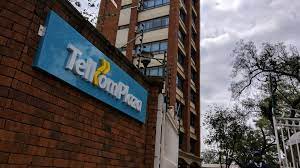The acquisition of a 60% share in Telkom Kenya by the Kenyan government has been revoked by the cabinet of that country.
After Helios Investment, a private equity group located in London, had terminated its investment in July 2022, a contract for 6.091 billion shillings was struck. Following the completion of the acquisition, the government of Kenya took full ownership of Telkom Kenya Limited.
The Kenyan government would get a return from Helios in the amount of Kes 6.091 billion, as was stated by the Cabinet. In addition, Telkom has been given permission to look for a new strategic investor after receiving approval from the government.
The notice read: “BY DINT of this decision by Cabinet, Jamhuri/Helios will refund to the Government of Kenya the amount paid as consideration for the takeover. The decision by Cabinet offers Telkom Kenya an opportunity to source and onboard another strategic investor, subject to the receipt of all regulatory approvals. Cabinet’s intervention will enhance the operational capacity of Telkom Kenya and make it a competitive player in the telecommunications market.”
Read also: MTN Cancels Pending Acquisition Plan With Telkom
The board of Telkom reverts
The amount of cash that Helios Investment received has been the subject of debate. It was stated that an agreement had been reached about the deal even though Telkom’s board of directors had not given their permission. It has come to light that the government, acting through the National Treasury, has been in negotiations with Jamhuri Holdings Limited (JHL) regarding the complete purchase of the telecommunications company.
The chairman of Telkom’s board of directors, Eddy Njoroge, expressed concern that the board did not have a quorum to facilitate the transaction. In addition, the board stated that it was not aware of the business transaction.
Mr Eddy Njoroge tried to lodge a complaint by writing a letter, but it was already too late. On August 5, 2022, the 6.09 billion Kenyan shillings that were required for the takeover of Helios Investment were transferred electronically from the Treasury.
“As board members, we have not been involved at all in the transaction, and in view of the fact that we could be held personally responsible for our actions, we could also seek this comfort from the Attorney General,” Njoroge said in the letter.
The Treasury Department asserted at the time that they had utilised Article 223 of the Constitution. This provision gives the Treasury the authority to spend public money even if Parliament has not given its consent. Officials from the Treasury stated that the government made the choice because they believed Helios might sell to an investor who did not share its objective of turning around Telkom Kenya as the reason behind the move.
The expediency with which the payment was processed raises some concerns regarding the manner in which the government intends to pursue compensation from Helios. The money was transferred one week prior to President Ruto’s inauguration by the administration of Uhuru Kenyatta.
Helios’ exit
Helios has left the Kenyan market, citing discontent with the country’s government as the primary reason. One of the concerns that the company brought up was the fact that the government was taking a long time to give its approval for the merger between Airtel Kenya and Telkom Kenya Limited. Helios stated that Telkom Kenya had allegedly sustained a loss of $200 million (Sh26.1 billion) as a result of the delay in approval.
However, it is important to keep in mind that at the time in question, Helios was in the midst of a massive exodus. Within the previous year, it had completed approximately six acquisitions across the African continent. Before investing in Telkom Kenya and acquiring a controlling stake in the company in 2016, the private equity firm had previously parted ways with Equity bank the year before.
It was claimed that Helios was attempting to raise cash for another fund at the time that the company sold its share in Telkom.
Telkom’s lawsuit against SA President Cyril Ramaphosa succeeds
About Telkom Kenya’s debts
Following in the footsteps of Safaricom and Airtel Kenya, Telkom Kenya Limited is Kenya’s third-largest telecommunications provider.
The corporation has reportedly been straining under the weight of a debt that totals 7.2 billion Kenyan Shillings. The massive amount of debt has made it difficult for Kenya’s oldest telco to pay its bills.
Because of this, American Tower Company (ATC) has been forced to turn off some of its communication towers, which has led to disruptions in network service. According to several estimates in the media, Telkom owes ATC around KSH 3.5 billion, which is equivalent to 23.8 million USD.
Previously, the government had given the impression that it was searching for a strategic investor who was willing to assume responsibility for Telkom’s debt.




